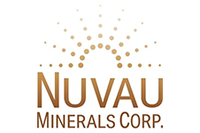New York to be Testing Ground for Zinc-air Battery Technology
Eos Energy Storage and New York’s Con Edison have teamed up to test a new zinc-air battery that Eos claims can provide grid-scale energy storage at “unprecedentedly” low prices.
While zinc has been used in batteries since the industry’s early days, it is only recently that the metal has started to become more of a major player in the sector. The reason? New research is allowing zinc to do what other materials cannot — for one, via zinc-air battery technology it can provide grid-scale energy storage at “unprecedentedly” low prices.
At least that’s what Eos Energy Storage, a company focused on creating low-cost energy storage solutions, believes. And the company intends to prove it — it recently partnered up with Consolidated Edison Company of New York (Con Edison), a subsidiary of Consolidated Edison (NYSE:ED), which plans to use a $250,000 New York State Energy Research and Development Authority grant to test one of Eos’ batteries on New York’s grid.
Eos describes the pilot program as a “milestone,” noting in a press release that it is set to start up toward the beginning of 2014. The battery that will be tested is the Eos Aurora, a 1MW/6MWh grid-scale battery that is the company’s core product. It is “backed by Eos’s novel, low-cost and proprietary zinc hybrid cathode technology, which has a 75% round-trip efficiency rate and a 10,000-cycle/30-year lifetime.”
Michael Oster, CEO of Eos, commented, “[o]ur belief is that affordable energy storage will improve the efficiency and resilience of the electricity grid while reducing costs for utilities and customers alike, and it is a great opportunity to prove this together with a pre-eminent utility like Con Edison.”
Pricing is key
As a MIT Technology Review article explains, in metal-air batteries, such as those made with zinc, metal reacts with oxygen from the air to produce electricity. These batteries are attracting interest because they can store more energy than lithium-ion batteries and, because they use low-cost zinc, could ultimately be cheaper than lead-acid batteries, which are the cheapest and most widely used type of battery.
This low pricing is what has Con Edison excited about the Eos Aurora. Greentech Media notes that Eos is aiming for a total system cost of $1,000 per kilowatt, which comes to $160 per kilowatt hour of energy storage. That’s significantly lower than the cost of running today’s flow batteries — Greentech states that they are being priced between $400 and $600 per kilowatt hour even as they operate less efficiently than Eos’ battery. Lithium-ion batteries are even more expensive, sitting at $800 to $1,000 per kilowatt hour, though they do provide “certain power delivery strengths” that the Eos battery does not.
Tackling rechargeability
Another attractive quality of the Eos Aurora is that according to Eos, it does not have the rechargeability issues common to zinc-air batteries. While most batteries of this type are not rechargeable due to how their anodes and cathodes are affected by air, Eos has avoided that problem by using “what’s essentially salt water as an aqueous electrolyte in its battery cells,” Greentech states.
In doing so, it has gotten the battery up to 6,000 cycles in the lab, putting it on par with lithium-ion batteries.
Slow and steady wins the race?
Philippe Bouchard, Eos’ business development manager, told Greentech that Eos currently has five other partners, as yet unnamed, testing “smaller-scale” versions of the battery. Looking ahead, the company expects to announce more large utility partners this summer.
All of these relationships are in aid of commercializing the Eos Aurora, but don’t expect to see the battery in widespread use for awhile. Bouchard stressed that the company is still in the early stages of development and does not plan to rush forward, noting that its other unannounced partnerships will likely progress at the same pace as the one with Con Edison.
Securities Disclosure: I, Charlotte McLeod, hold no direct investment interest in any company mentioned in this article.
Related reading:

